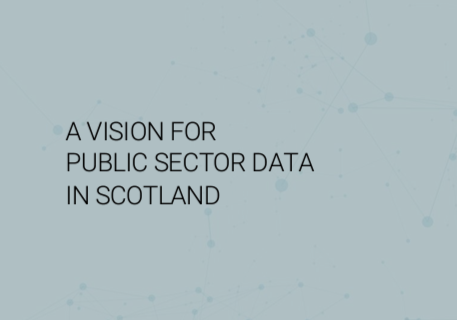Scotland’s new CDO is championing a collaborative future for data
The Scottish Government has appointed Tom Wilkinson as Chief Data Officer (CDO) to continue building its data journey.
When Government Transformation Magazine caught up with the new CDO – just two months into the role – he was quick to preface the conversation by stating that he was not rushing into making “bold and rigid” commitments so early on in his tenure
“I'm wary of five-year strategies in the digital and data space where what's possible and what people want can change quickly. It's good to be agile and dynamic about what we're doing.”
Wilkinson’s former role as Head of Data Science at the UK's Foreign Commonwealth and Development Office, gave him the opportunity to explore ideas around digital transformation when he was responsible for building data systems aimed at creating new networks to share knowledge.
In his new position, Wilkinson sees an opportunity to expand on this concept of “collective intelligence” even further. His remit, which spans many services within the Scottish Government, puts in him the perfect position to start joining up currently disparate digital systems and their users, to harness the power of shared knowledge and promote effective collaboration.
“This is where I believe data can be harnessed to create a more seamless service for the people of Scotland. I want to blur the line between the public, government and the Civil Service so there’s a lot more information being shared externally and so that people are kept well informed about the subjects that matter to their lives".
Finding common languages
Key to delivering this vision will be finding common standards for public organisations’ data, Wilkinson says.
"This will require an agile strategy that helps grow the data capabilities of public sector organisations. This will ensure that everyone involved in designing and delivering those more seamless services develops a certain degree of maturity in the way they think about, and handle, data."
Wilkinson notes that the Scottish Government is already "very progressive" in the frameworks it has in place for assessing the data maturity of organisations and helping them to transform. The Data Transformation Framework (DTF) seeks to improve and enable data reuse in the Scottish Public Sector through data maturity assessments that identify pathways to increase knowledge and skills.
“Where I'm hoping to bring value is by integrating what we’ve done on data maturity into the wider agenda around digital transformation and seamless public services, joining up the solutions we already have."
Achieving seamless online services for the Scottish people also requires a cultural shift - one that hinges on the ability to have open and constructive conversations with the public on data and Artificial Intelligence (AI), Wilkinson says.
This is the thinking behind the Scottish Government’s new AI Register, which promotes ethical use of technology and feeds into its existing track record on Open Data and commitments to Open Government. Built in collaboration with Finnish start-up Saidot, the Scottish AI Register is designed to provide organisations with a template for best practice on their use of AI.
Wilkinson sees a lot of potential for decision-making in government to become better informed by transforming existing data using AI into relevant information for decisions.
“This potential comes at the cost of opacity,” he adds. “You are asking technically very expert people to do that analysis so the officials consuming the information have as much reassurance as possible to be able to trust in that analysis.”
He says this is where the AI Register helps not only officials, but also the public to have more trust in the way in which data is being transformed into relevant information for decisions.
The key to unlocking value in AI
Wilkinson says encouraging more public discourse on the use of data will be “key to unlocking” new value opportunities for technologies. This is particularly important as the Scottish Government continues work on pioneering a digital identity service that is ethical, secure and as useful as possible for its users.
“The Scottish Government is a couple of years into its AI strategy now and we are getting to a point where we need to think about adapting it to the changes that we've been seeing.”
An important factor in all of this is the public perception of data and (if it's not too abstract) the government perception of the public perception.
“There needs to be a conversation with the public that helps us to understand how they view our ability as public servants’ to share data within and across organisations. Understanding that will help to inform how we design the easiest and safest experience possible for people accessing public services,” Wilkinson says.
The challenge here is making sure that there is a well-informed public debate that is as inclusive as possible while avoiding echo chambers.
“There's a lot of strong, loud voices in the public sphere about data that aren't always necessarily well informed. There's a danger that these represent a fairly narrow group of people so it's important that we broaden participation in the debate.”
A willingness to co-create and collaborate is the spirit with which Wilkinson hopes to push forward Scotland’s data ambitions. “It’s about having a lot of conversations with a lot of people, empowering technical experts and unheard minorities. We want to collaborate, not command,” he says.






